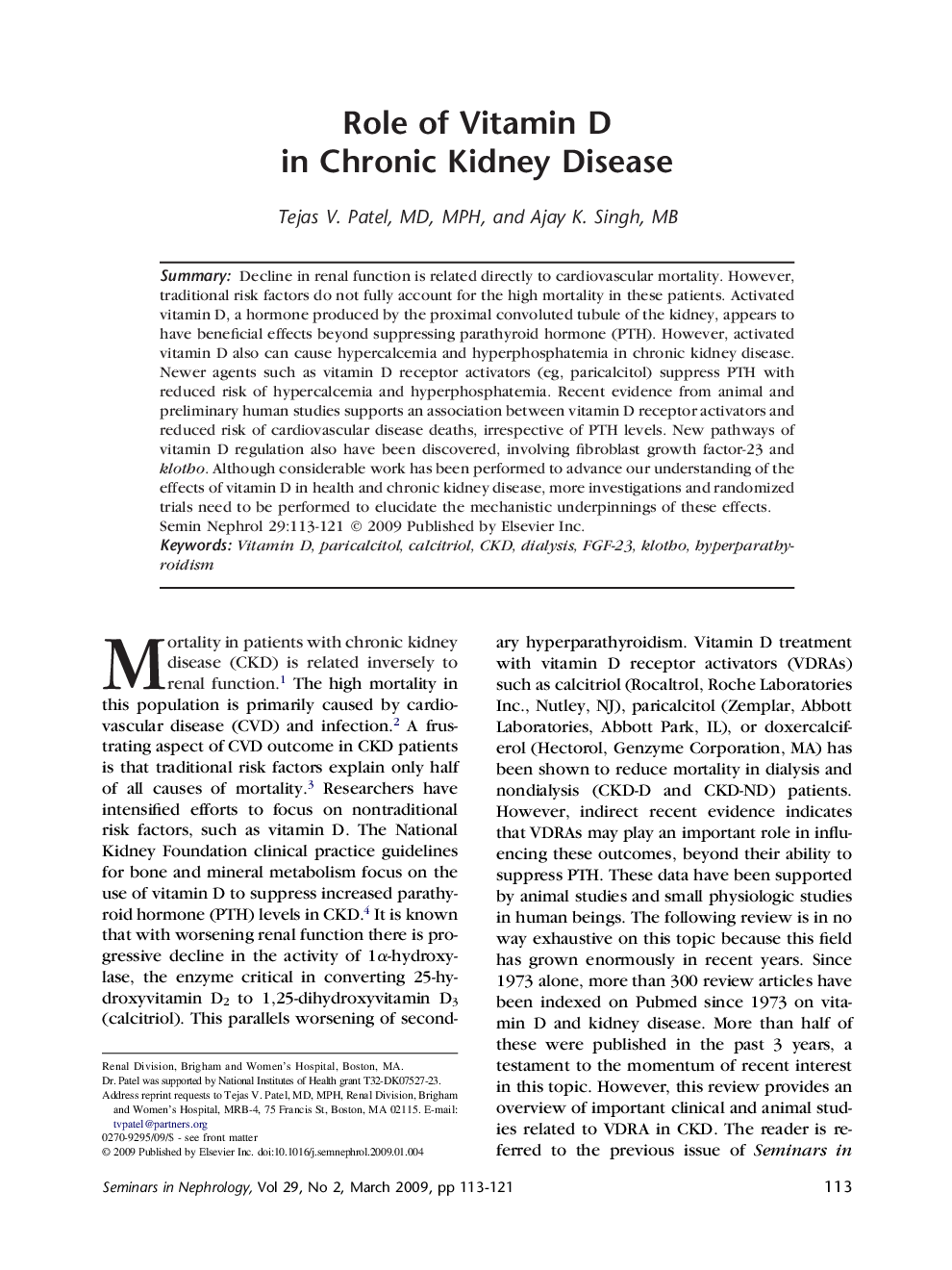| Article ID | Journal | Published Year | Pages | File Type |
|---|---|---|---|---|
| 3897116 | Seminars in Nephrology | 2009 | 9 Pages |
Abstract
Decline in renal function is related directly to cardiovascular mortality. However, traditional risk factors do not fully account for the high mortality in these patients. Activated vitamin D, a hormone produced by the proximal convoluted tubule of the kidney, appears to have beneficial effects beyond suppressing parathyroid hormone (PTH). However, activated vitamin D also can cause hypercalcemia and hyperphosphatemia in chronic kidney disease. Newer agents such as vitamin D receptor activators (eg, paricalcitol) suppress PTH with reduced risk of hypercalcemia and hyperphosphatemia. Recent evidence from animal and preliminary human studies supports an association between vitamin D receptor activators and reduced risk of cardiovascular disease deaths, irrespective of PTH levels. New pathways of vitamin D regulation also have been discovered, involving fibroblast growth factor-23 and klotho. Although considerable work has been performed to advance our understanding of the effects of vitamin D in health and chronic kidney disease, more investigations and randomized trials need to be performed to elucidate the mechanistic underpinnings of these effects.
Related Topics
Health Sciences
Medicine and Dentistry
Nephrology
Authors
Tejas V. MD, MPH, Ajay K. MB,
